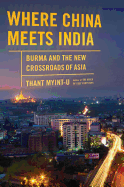By Hirsh Goodman
"Chronicle of the existential insecurity that has tipped Israel's fall from grace, and a strong plea to quit its role as occupying power to the Palestinians.
As a senior associate at the Institute for National Security Studies at Tel Aviv University, former journalist Goodman (
Let Me Create a Paradise, God Said to Himself: A Journey of Conscience from Johannesburg To Jerusalem, 2005, etc.) is both a devoted citizen of Israel and well-meaning critic deeply concerned about the future of his country. In these pointed essays, he examines the Arab-Israeli cycle of conflict that has plagued Israel from its founding, when a country of largely Holocaust survivors defeated a hostile consortium of Arab states against all odds in 1948 so that the survival motto of "never again" became the national mantra: "paranoia was seen as a national value, great freedoms were afforded the security organizations, generals were Israel's soccer stars, and the secret service, the silent heroes of the day." Hubris dogged the new nation, swollen with the world's Jewish refugees, while the remnants of ragged, resentful Palestinians were used by Arab states as pawns in striking at Israel. "Myopic" leaders like Golda Meir could not envision equal treatment for the Palestinians, and the assassination of Anwar Sadat and Yitzhak Rabin helped derail the peace process, soon followed by revenge attacks, suicide bombs and four years of the Second Intifada. Goodman sees Ariel Sharon's decision to shed Gaza and its Palestinians in 2005 as a necessary excision of a "cancer" eating away at Israel's moral center, not to mention the economic drain. The author considers the threat to Israel's north, the toll of bad press on Israel's image, its relationship with the United States (and very powerful AIPAC lobby), the prickly issue of Jerusalem and, finally, the essential democratic structure of the young, vital country. In short, Israel cannot sanction another collapse of peace.
Tapping into his access to the defense structure, Goodman does a solid job depicting Israel's "ball of thorns."" (Kirkus Reviews)
Check Our Catalog
 By Dana Priest
By Dana Priest








